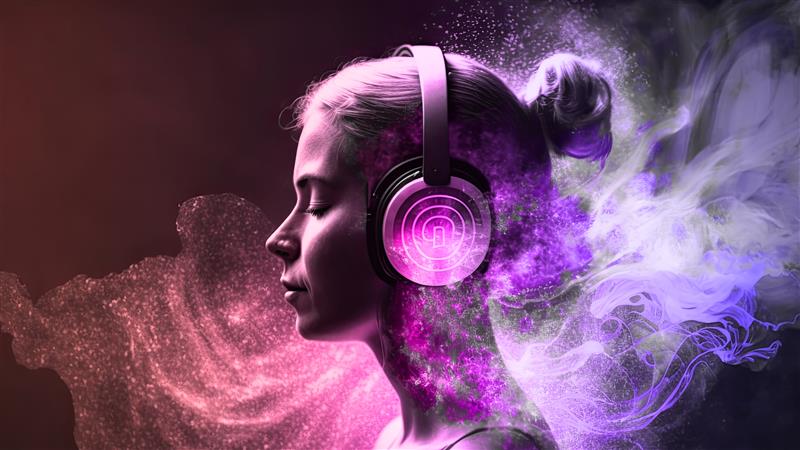
Listeners on Spotify discovered that psychedelic rock band The Velvet Sundown, with over one million monthly listeners, was written mostly by generative AI, raising questions over AI music copyright and the destiny of art in streaming.
What seemed to be a retro rock resurgence turned out to be an AI test.
Velvet Sundown, thought to be a real band, is now a “synthetic music project” on Spotify, fueling fiery debates over authorship, originality, and AI-generated music copyright laws, as technology makes it easier-than-ever to create music without humans.
The Future’s All About AI Music
AI has been around in music production for a long time, but it looks like newer technologies, like Suno and Udio, are pushing boundaries even further. These websites permit users to compose whole songs from tiny prompts, no singing or instruments required.
“We’ve gotten to the point where AI is putting out songs that actually make sense structurally,” Music technology expert Jason Palamara told CNBC. He praised The Velvet Sundown’s production and warned this may just be the beginning of a bigger trend.
In 30 days, the AI band made an estimated $34,235 via streaming platforms. Other artists like the AI-created artist Aventhis are garnering hundreds of thousands of listeners in the meantime.
A report from the AI detection tool company Deezer recently came out and stated that 18% of all tracks uploaded to platforms are machine-generated—a reality that cannot be ignored in the era of AI sheet music generator sites and computer program composition software.
How to Tell If Music Is AI Generated?
It’s not always easy to know if a song is produced by an AI. Software such as Udio and Suno can generate harmonies, melodies, and lyrics that sound human.
Even images such as The Velvet Sundown’s too-perfect band portraits are sometimes AI-generated. Critics argue that emotional depth is lacking, but many listeners can’t tell.
Artists like Tilly Louise are feeling the bite of an AI music competition with real artists.
“For a band that doesn’t even exist in the first place to then get all this social media hype, it’s so frustrating,” Louise said.
Despite having millions of streams, she still maintains a day job. Large music labels like Sony, Warner, and Universal have sued for AI generated music copyright issues accusing technology websites of using copyrighted content illegally. Others are instead attempting to understand how to leverage tools like AI music mashup software for their own purposes, leveraging machine power with human innovation.
In response to the shift, schools are now teaching children how to work with AI, and artists like Timbaland are initiating efforts like Stage Zero, which is founded on music experiences based on AI. But others are continuing to call for transparency regulations and protections, such as labeling provisions for AI generated sheet music and songs.
“Consent, credit, and compensation are norms in AI production,” said American Federation of Musicians President Tino Gagliardi. Lacking transparency, he warned, AI music copyright had the potential to endanger human creativity.
Artists and musicians’ unions are demanding lawmakers to act, and they’re demanding fast actions.
Inside Telecom provides you with an extensive list of content covering all aspects of the tech industry. Keep an eye on our Tech sections to stay informed and up-to-date with our daily articles.